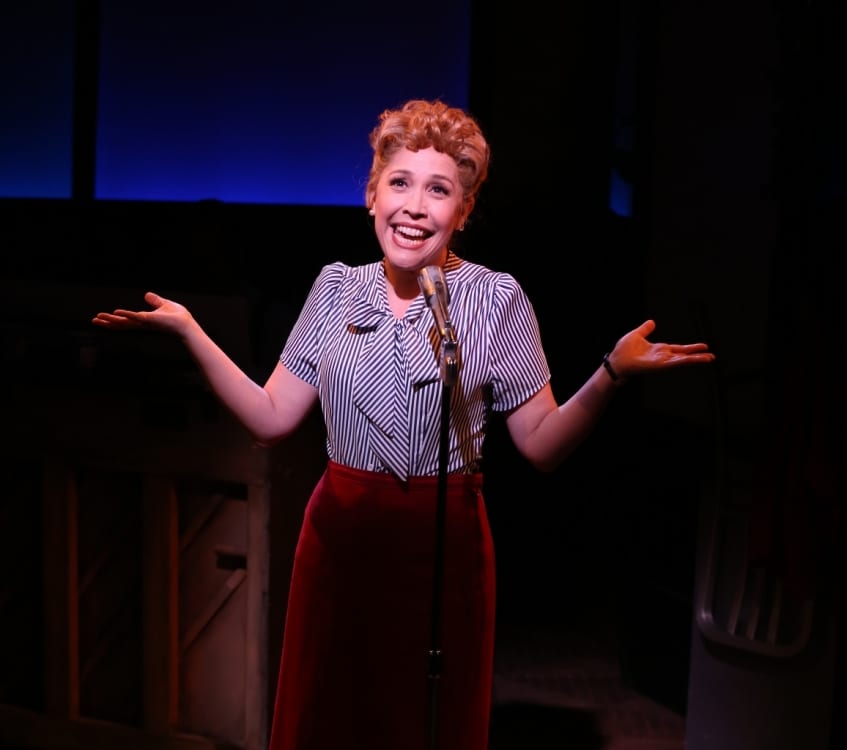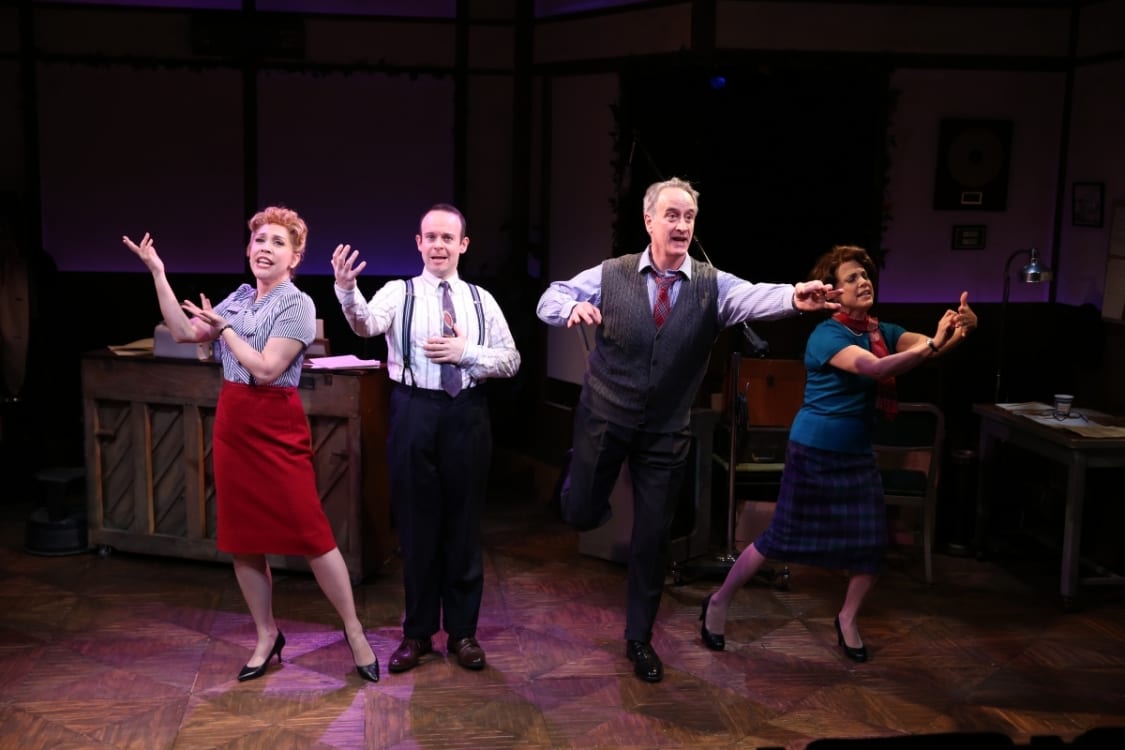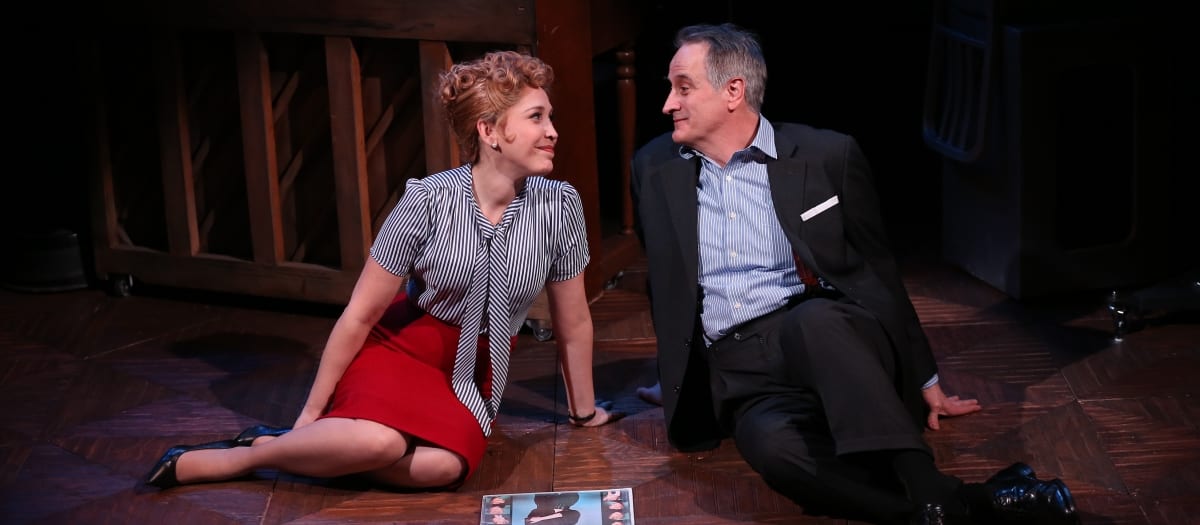Only this past year in New York, we’ve seen juke-box shows about Cher, Donna Summer, and The Temptations. Willy Holtzman’s nostalgic new play Smart Blonde follows this trend of “The Culture Icon You Know, The Story You Don’t” narratives, albeit on a much less glamorous scale than its extravagant predecessors at 59E59 Theaters. This one centers on the brief but significant life of Judy Holliday, the beloved yet stereotyped star of the classic film “Born Yesterday,” and Broadway hits like the musical “Bells Are Ringing.” Her story is admirable, but far from current, and this production strains to do justice to her legacy.

In long strings of flashbacks from the present day at a recording studio in 1964, we follow Ms. Holliday’s journey from a broke nightclub performer to the legend we know her as today. Despite the constant shifts in time, which is typical of shows of this nature, director Peter Flynn keeps the recording studio (meticulously detailed by Tony Ferrieri) as the only setting, with the occasional furniture and lighting switch to signify a change. This was almost certainly an attempt to perpetually remind the audience that these are only flashbacks, but the result is a disjointedness and occasional confusion of character and place as a result of strikingly similar clothing between its multi-part ensemble members, and even the sometimes bizarre use of props (featuring one of Holliday’s vinyl covers as a Scrabble board). The story is complicated further by its many relationships, none of which are deeply explored, including one touched upon love story that frustratingly never comes back to light. Its most inherently dramatic material (including when Ms. Holliday comes under suspicion of the communist-hunting Red Scare) mostly seems contrived and over too soon. The glazed-over details may be because so much is covered in its 90-minute runtime, but the rushed pace doesn’t give time for Judy herself (played by the charming Andrea Burns) to settle in for audiences.

Ms. Holliday’s legacy is hard to appreciate over the blazing performers and influencers that have come along since her death. Even so, Smart Blonde seems to be telling her story only for those that already know and love her. This is most apparent with the inclusion of songs Ms. Holliday once sang (even though their presence is rarely justified dramatically), on-the-nose reenactments of some of her signature moments on stage and screen, and cheap jokes that have not aged well. A much too heavy-handed attempt to bring to light what she suffered as a woman working in 40’s and 50’s Hollywood is far from enlightening, and seems like an obligatory act from it’s male writing and directing team.
In some of the final moments, we see her (almost) come to terms with her fate, but even these moments seem plucked out of a movie we’ve already seen. Along with the rest of the play, little is contributed to the legacy of one of the greats, which is better served by the origins of these works of yesteryear.

